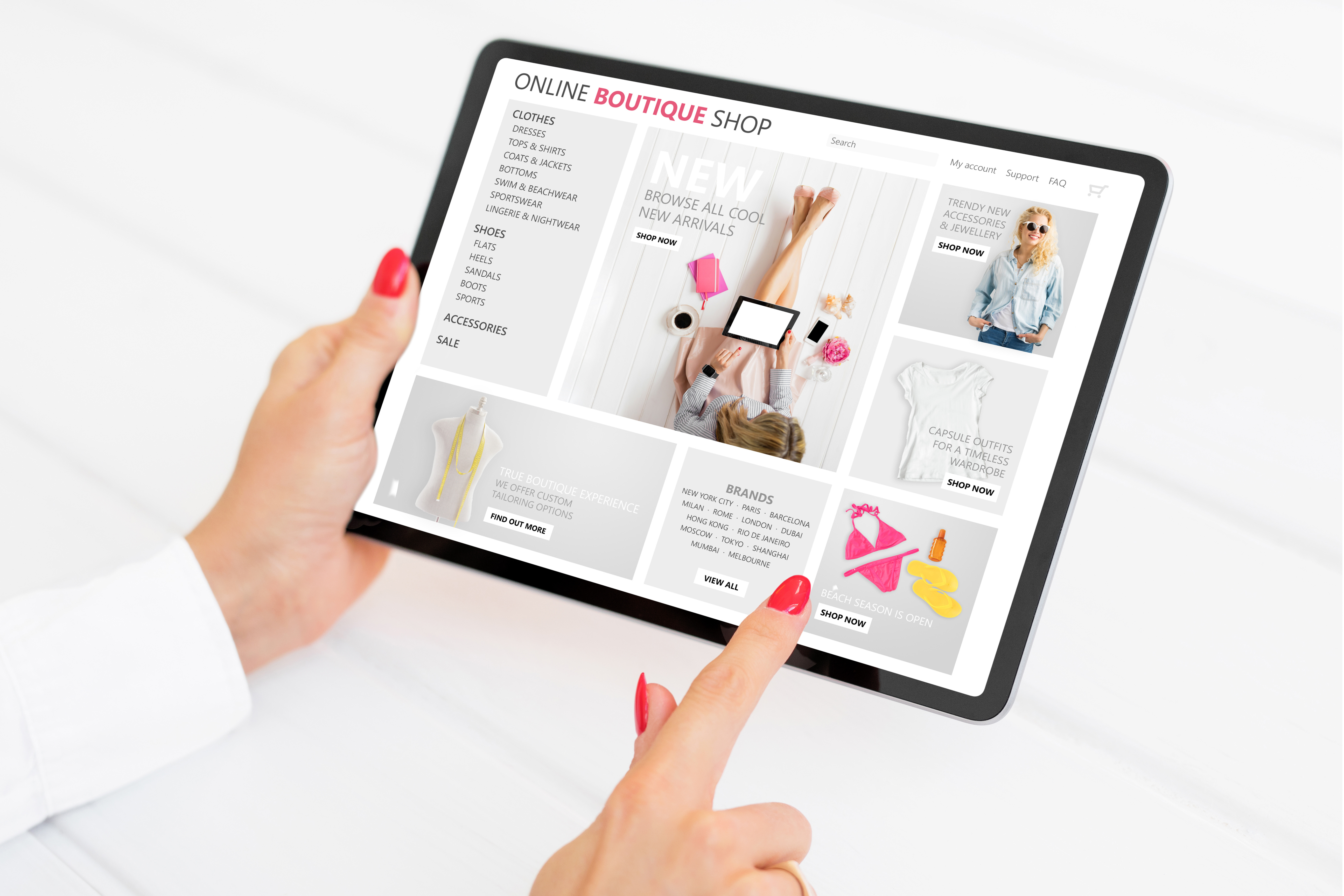7 types of social proof to boost your brand’s credibility
12/07/2024
If you’re having trouble maintaining customer trust and generating more leads for your business, it may be time for a dose of social proof.
Why?
Because, as consumers, we’re becoming increasingly sceptical of traditional advertising tactics and promotional campaigns. We’re always seeking reassurance from real-life experiences and the opinions of others.
People trust people more than they trust brands. It’s a universal truth. It’s human nature. And it’s driven by our constant desire for authenticity and genuine connection.
So, where can we find this authenticity and true connection?
Enter social proof: a powerful psychological phenomenon that uses the influence of social cues to shape our perceptions and behaviours.
In this article, we’ll introduce you to the concept of social proof, unveil its benefits, and guide you through seven types of social proof that are proven to convert your lurking followers into loyal customers.
So, are you ready to boost your credibility with social proof? Read on to learn the why and how.
What is social proof?
Social proof is a psychological phenomenon where people mimic the actions of others in an attempt to reflect correct behaviour for a given situation. In marketing, gaining social proof means positive public opinions and recommendations that could influence potential customers’ purchasing decisions.
Social proof works because consumers trust people they personally know more than they trust the brand that’s selling them something. In fact, 81% of buyers trust advice from family and friends over that from a business.
But why are people so influenced by the behaviour and opinions of others?
It’s a product of our evolutionary history. Humans are social creatures—we instinctively trust the wisdom of the crowd.
If we see a group of people reacting positively toward something, we’re more likely to perceive that thing as good or beneficial. This instinct has only been magnified by the internet and social media, which constantly expose us to the opinions and behaviours of others.
For your brand, joining this conversation could have a massive impact. Brands that have effectively harnessed social proof have seen increased engagement, conversions, and, ultimately, sales.
So, whether you’re just launching a new product or trying to boost the credibility of your existing offerings, social proof should be an integral part of your marketing strategy.
5 benefits that prove social proof is a must-have
Customers’ trust can be hard to earn. Simply boasting high-quality products or great customer service won’t cut it anymore.
Buyers now want to hear it from others who have already used your products or services before being convinced. Here are five benefits your business could be reaping with the help of social proof:
1. Increased trust
Social proof plays a pivotal role in building trust with your target audience. When potential customers see that others have had positive experiences with your brand, they are more likely to trust your products or services.
This trust is essential for overcoming scepticism and reducing the perceived risk associated with making a purchase. By showcasing real-life examples of satisfied customers, you can instil confidence in your offerings and establish yourself as a credible and trustworthy authority in your industry.
2. Enhanced brand reputation
Social proof contributes significantly to shaping and reinforcing your brand’s reputation. Feedback from satisfied customers serves as valuable endorsements that validate the quality and reliability of your products or services.
A strong brand reputation attracts new customers and also fosters loyalty and advocacy among existing ones. By consistently delivering exceptional experiences and leveraging social proof to highlight your brand’s strengths, you can cultivate a positive reputation that sets you apart from competitors and resonates with your target audience.
3. Higher conversion rates
One of the most significant benefits of social proof is its ability to drive higher conversion rates. When potential customers see that others have successfully used and benefited from your products or services, they are more likely to take action and make a purchase themselves.
Social proof is a persuasive signal that reassures hesitant buyers and alleviates concerns, ultimately nudging them towards conversion. No matter the type of your customers’ endorsements, leveraging social proof effectively can significantly impact your conversion metrics and contribute to your bottom line.
4. Improved customer loyalty
Social proof helps attract new customers and fosters loyalty and retention among existing ones. When customers feel confident in their decision to choose your brand based on the positive experiences of others, they are more likely to remain loyal over time.
By consistently delivering exceptional products, services, and customer experiences and showcasing the positive feedback and endorsements of satisfied customers, you can strengthen your relationships with your audience and build long-term loyalty and advocacy.
5. Better social engagement
Social proof can also lead to more and better social engagement, as satisfied customers are likely to interact with your brand on social media platforms. When customers share positive experiences, it amplifies your brand’s reach and visibility, potentially attracting new audiences.
Moreover, these experiences can spark conversations and build a community around your brand, helping you create a more engaging and interactive social media presence, strengthening connections with your audience, and driving even more engagement.
7 types of social proof to boost your credibility
There are many types of social proof, each with unique characteristics and benefits. Understanding each type can help you effectively use it to enhance your brand’s credibility and influence your customers’ behaviour.
So, without further ado, here are seven types of social proof to consider:
1. Customer reviews
On average, 92% of consumers are hesitant to buy a product without customer reviews. That’s because customer reviews and ratings provide valuable insights into the experiences of previous customers, offering social proof of your product or service’s quality.
Reviews lend credibility to your brand, demonstrating to potential customers that others have chosen and benefited from your offerings. Positive reviews can be particularly persuasive, influencing purchase decisions and encouraging conversions.
2. Expert approval
When an authoritative figure in your industry endorses your product or service, it enhances your brand’s credibility and authority. Expert approval signals to potential customers that your offering is recognised and respected by knowledgeable professionals in the field.
This form of social proof can significantly boost trust and confidence in your brand, leading to increased loyalty and conversions.
3. Celebrity endorsements
Research published by Marketing Charts found that 1 in 4 adults purchased a product based on recommendations from an influencer.
Celebrities have large followings and influence, and their endorsement of your brand can lend significant credibility and visibility. By associating your brand with well-known personalities, you can leverage their influence to reach new audiences and enhance brand recognition.
While securing celebrity endorsements may be challenging, they can powerfully impact consumer perceptions and purchase decisions.
4. User testimonials
User testimonials provide detailed accounts of customers’ personal experiences with your product or service and can lead to up to 34% more conversions.
Testimonials go beyond simple reviews. They offer compelling narratives that resonate with potential customers.
By sharing authentic stories of how your brand has satisfied others’ needs, you can build trust and credibility, making it easier for prospects to choose your offerings.
5. Case studies
Case studies offer concrete evidence of your product or service’s effectiveness by showcasing real-life examples of solutions your brand has provided to other customers. In fact, almost 50% of SaaS businesses report that case studies have driven their sales.
Backed by data, metrics, and results, case studies demonstrate your brand’s capabilities and the tangible benefits it delivers. By presenting detailed success stories, you can instil confidence in potential customers and alleviate any doubts or hesitations they may have.
6. Social media mentions
In today’s digital landscape, social media mentions serve as a powerful form of social proof. When users tag or mention your brand in their posts, it demonstrates their endorsement and satisfaction with your offerings to their social networks.
These organic mentions create visibility and awareness for your brand, influencing others’ perceptions and purchase decisions. By actively engaging with user-generated content and fostering positive interactions on social media, you can leverage social proof to strengthen your brand’s reputation and credibility.
7. Certifications and badges
Awards, certifications, and badges from reputable third parties serve as strong indicators of your brand’s quality, reliability, and trustworthiness.
These external validations demonstrate that your brand meets high standards and adheres to industry best practices.
By prominently displaying certifications and badges on your website and marketing materials, you can reinforce trust and confidence in your brand, reassuring potential customers of your credibility and competence.
Conclusion
Using social proof can dramatically enhance your brand’s credibility and steer the purchasing decisions of your customers. Moreover, a simple recall of an overwhelmingly positive review can trigger a wave of new consumers.
From the succinctness of customer reviews to the convincing pull of celebrity endorsement, the in-depth analysis of case studies, and the appeal of social media mentions, social proof will definitely help boost your credibility and bottom line.
If you want to incorporate social proof into your brand’s messaging but don’t know how, we’re here to help. You can choose to contact us or schedule a free consultation with our founder.
Relevant stories
5 engaging content formats your customers want
- 09 August 2024
How to choose the perfect content agency for you
- 26 July 2024
Why you should start a business blog today
- 07 June 2024
How to create your first content strategy
- 24 May 2024
4 marketing strategies to differentiate your brand
- 26 April 2024
7 must-have sections for a perfect website structure
- 19 April 2024
Do you really need a business website?
- 05 April 2024
5 strategies to maintain website content after launch
- 29 March 2024
Ensure consistent quality content through outsourcing
- 22 March 2024
How to plan a website revamp without the hassle
- 15 March 2024
A B2B marketer’s guide to content creation
- 08 March 2024
Working with specialised content agencies
- 01 March 2024
















